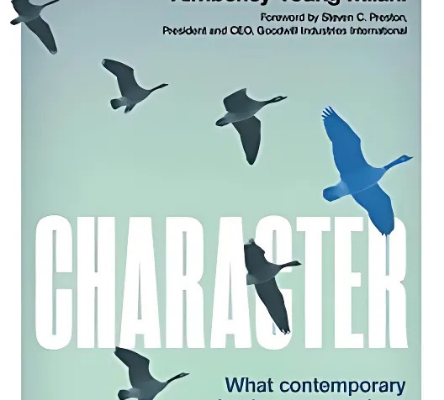As a business owner, I was recently enlightened by Deloitte’s fourth annual readiness report entitled Building the Resilient Organization.
A number of our clients are business owners, so I wanted to share the information in the hopes that it would inspire you as it did me. This is an excellent read for all business owners or leaders of organizations as it delves into what attributes resilient organizations demonstrated during the global pandemic.
After interviewing 2,260 private and public-sector CXOs in 21 countries, across multiple industries, they identified five key attributes of the more resilient organizations. They were prepared, adaptable, collaborative, trustworthy, and responsible.
The COVID-19 pandemic continues to challenge organizations today but change and disruption will keep happening after the pandemic ends. The report highlights, for example, climate change and environmental sustainability as the top societal challenge over the next decade. Companies should pay attention to the winning attributes highlighted in this report and challenge themselves not on how they have done, but rather, how they can continue to improve on these to become an even stronger company in a rapidly changing dynamic world.
1) Prepared
“The organizations that anticipate and plan ahead for disruption, challenges, and opportunities will almost certainly be the most resilient.”
There is a correlation between success in 2020 and being prepared for challenges ahead of the pandemic. Not necessarily with the planning foresight for this particular disruption but rather forethought around potential major business challenges (both internal and external). Organizations that spend time planning on both short-term and long-term priorities are much more prepared for major disruption and opportunities.
The report states that preparedness means acting early. Those that took action prior to being in the midst of disruption, tended to fair better.

For organizations to thrive going forward, they must be able to plan for short-term and long-term strategic priorities and potential challenges. Integrating this approach into their strategic planning process will give organizations greater survival skills and a competitive advantage going forward.
2) Adaptable
“As YETI’s Castro confirms, “To succeed in this environment, organizations need people who are agile, comfortable with ambiguity, and able to move and change on a dime.””
The report highlights the importance of employee versatility, flexibility and adaptability. Cultivating these traits and in so doing, creating resilient cultures, was critical to organizations that excelled in 2020.
Having multiple diversified revenue streams allowed companies to pivot to streams that were more profitable and less impacted during the pandemic. We saw this with adaptable companies that had a mix of online and traditional retail business. They were better able to rotate resources from their traditional business model to their online business.
Embedding advanced technologies into core strategies and operations was highlighted as a way to improve success in the face of challenges. Key to this was not only having advanced technologies, but the ability to accelerate those that gave the best chance of success, while putting the breaks on others.
Companies that are adaptable in the future will need their work force to be adaptable. They will adjust their hiring practices to look for individuals with specific mindsets, like adaptability, rather than just hiring for specific skillsets.
3) Collaborative
“Collaboration can increase resilience both by helping organizations make decisions and communicate more effectively, and by fostering a sense of trust among employees.”
Collaboration was paramount for companies to speed up their decision-making abilities, their ability to mitigate risk, and their capacity to innovate.
The report highlights how collaborative organizations are built by removing silos and emphasizing cross-functional work. Organizations that still operate in silos, do not have the same ability to adjust across multiple departments and business lines. This makes them slower to react when the need arises.
Germane to collaboration is creating a sense of trust among employees, communicating well, and making better decisions. Trust is therefore elevated through successful collaboration, and organizations that do this well thrive.
With employees working from home, the work environment and culture that would have allowed for easier collaboration was tested. Employers needed to invest in and transition quickly to the technology required to allow for collaboration while working from home. Business leaders polled highlighted the strong relationship between collaboration, technology and resilience.
4) Trustworthy
“Those who are succeeding told us they were focusing on improving communication and transparency with key stakeholders and leading with empathy.”
There was a tremendous need and opportunity to focus on improving communication and transparency both internally and externally, with customers, employees, vendors, regulators, communities, and investors and shareholders.
Deloitte believes that actions can be taken to cultivate trust across these three dimensions:
- The physical safety of employees and customers
- The emotional strength of employees (stress and mental health)
- Digital cybersecurity
With employees, in particular, companies can focus on improving open, honest and transparent communication in order to heighten trust.
5) Responsible
“The business world has a responsibility beyond the bottom line – Stakeholders expect institutions to align their actions to a higher or meaningful purpose and put the needs of their customers, employees, contractors, communities, and the planet at the forefront.”
There is a deeper recognition that organizations have a responsibility beyond just their bottom line and that they should balance all of their stakeholder needs.
Being responsible was one of the five key attributes of resilient organizations. Those that prioritized employee well-being, philanthropic efforts and environmental investments, tended to demonstrate greater resilience.
Key to this attribute is authenticity. It is organizations that demonstrated authenticity in valuing employees, customers, and partners all along the supply chain, while also helping communities and the planet, that had the most agile cultures and were most resilient.

Moving forward, these five attributes must be deliberately fostered and developed to allow organizations to continue to adapt and pivot.
This report brings important perspective to the ingredients that helped organizations survive and thrive in 2020. It highlights many actionable items that leaders and business owners can implement within their organizations to ensure they lead in this environment of increasing change and disruption.
I enjoyed this apt quote from Caroline Tose, COO, HSBC Canada that was highlighted in the report:
“As we look to build on priorities going forward, we shouldn’t lose sight of what we have learned: staying connected to our customers, responding to changes in real time and not taking too long to make decisions, leveraging what we’ve learned to maintain business continuity, and using technology to its fullest potential. We must hold the mirror up and keep challenging ourselves to constantly improve.”
This material is provided for general information and is subject to change without notice. Although every effort has been made to compile this material from reliable sources; no warranty can be made as to its accuracy or completeness, and we assume no responsibility for any reliance upon it. Before acting on any of the above, please contact Tall Oak Private Wealth of Raymond James Ltd., for individual financial advice based on your personal circumstances. Raymond James Ltd. – Member – Canadian Investor Protection Fund. Insurance offered through Raymond James Financial Planning Ltd., not a member – Canadian Investor Protection Fund.
The views expressed in this commentary are those of Tall Oak Capital Advisors as at the date of publication and are subject to change without notice. This commentary is presented only as a general source of information and is not intended as a solicitation to buy or sell specific investments, nor is it intended to provide tax or legal advice. Statistics, factual data and other information are from sources Tall Oak believes to be reliable but their accuracy cannot be guaranteed. This commentary is intended for distribution only in those jurisdictions where Tall Oak Capital Advisors are registered. Securities-related products and services are offered through Raymond James Correspondent Services Ltd., member Canadian Investor Protection Fund. Insurance products and services are offered through Gryphin Advantage Inc., which is not a member-Canadian Investor Protection Fund. This commentary may provide links to other Internet sites for the convenience of users. Tall Oak Capital Advisors is not responsible for the availability or content of these external sites, nor does Tall Oak Capital Advisors endorse, warrant or guarantee the products, services or information described or offered at these other Internet sites. Users cannot assume that the external sites will abide by the same Privacy Policy which Tall Oak Capital Advisors adheres to.




